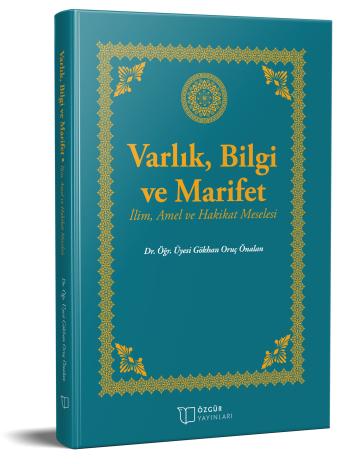
Varlık, Bilgi ve Marifet
İndir
Özet
İnsanın yaratılışı, beden ve ruh çerçevesinde iki kısımdır. Hicr Suresi 26. ayetinde işaret edildiği üzere beden, Allah Teâlâ’nın yaratma sıfatının bir eseri ve tecellisi olarak topraktan başlayarak devam eden fiziksel ve biyolojik değişim sürecindedir. Beden, ihtiyaçlara muhtaç olduğu kadar ruh da manevî kudrete o derece muhtaçtır. İnsan, kendisini yaratan İlahî iradeyi tanımak ve bilmek, bu âlemin yaratılış gerekçesini kavramak ve kendisinin dünya hayatındaki yaratılış amacını öğrenmek ister.
Tüm insanlığa gönderilen, hükmü çağları aşarak kıyamete kadar sürecek, ilk insan ve ilk Peygamber Hz. Âdem (as.)’ın kullara tebliğ ettiği Tevhîd dini ve sonrasında gelen semavî dinlerin devamı (hükümlerini ortadan kaldıran), Allah Teâlâ’nın katındaki tek din İslâm’dır. Miladî 610 yılında Cebrâil (as.), Peygamber Efendimiz Hz. Muhammed (sas.)’e vazifesini tebliğ etmiş böylece Resûlullah (sas.), Allah Teâlâ tarafından son ve en büyük yol göstericimiz olarak görevlendirilmiştir.
Dinin itikadî, amelî ve ahlâkî hükümlerinin amacı ise (makāsıdü’ş-şerîa) kulların dünya ve âhiret mutluluğuna erişmesi, bütün davranışlarında Allah Teâlâ’nın rızâsını kazanabilmesini sağlamaktır. Fâtır Suresi’nin 10. ayetinde, “güzel sözler – kelimu’t tayyib” ifadesi ilmi kastetmekte böylece amelin, ilmin tamamlayıcısı mahiyetinde olduğu gerçeğine dikkat çekilmektedir. O halde, makāsıdü’ş-şerîa’nın yolu ilim ve amelden geçmektedir ki ilim, amellerin de en faziletli olanıdır. İlmin amacı kendisi ile amel etmektir.

